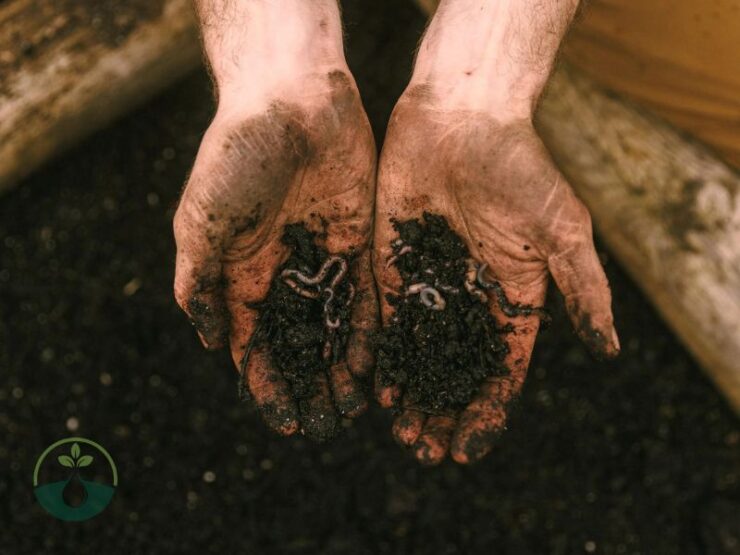The fascinating interplay between soil health and plant growth is a cornerstone of successful gardening and agriculture. One intriguing phenomenon observed by many gardeners and farmers is the sudden appearance of seeds popping out of the soil after the application of worm fertilizer. This article delves into the science behind this occurrence, exploring the role of worms in soil health, the mechanisms behind seed germination, and practical tips for gardeners to make the most of this natural process.
The Role of Worms in Soil Fertility
Worms, particularly earthworms, are often hailed as nature’s soil engineers. Their role in enhancing soil fertility is well-documented. As they burrow through the soil, they create channels that improve aeration and water infiltration. Additionally, worms consume organic matter such as dead leaves and plant debris, breaking it down into simpler compounds that enrich the soil. This process results in the production of worm castings, a highly nutritious form of compost.
Worm castings are rich in essential nutrients like nitrogen, phosphorus, and potassium. These nutrients are crucial for plant growth, and their slow-release nature ensures that plants receive a steady supply over time. The presence of beneficial microorganisms in worm castings further enhances soil health, promoting a balanced ecosystem that supports robust plant development.
How Worm Fertilizer Affects Seed Germination
The application of worm fertilizer, or worm castings, to soil can significantly impact seed germination. When seeds are planted in soil enriched with worm castings, they benefit from improved soil structure and nutrient availability. Here’s how this affects the germination process:
- Nutrient Availability: Worm castings provide a rich source of nutrients that are readily accessible to seeds. These nutrients are vital for the early stages of seedling development, helping seeds to sprout and establish strong roots.
- Improved Soil Structure: The incorporation of worm castings into the soil improves its texture and drainage capabilities. This creates an optimal environment for seeds to germinate, as it prevents waterlogging and ensures that seeds have adequate oxygen for germination.
- Microbial Activity: Worm castings introduce beneficial microorganisms into the soil. These microbes play a crucial role in breaking down organic matter and making nutrients available to plants. They also help suppress harmful pathogens that could hinder seedling growth.
- Enhanced Soil Moisture Retention: The organic matter in worm castings helps the soil retain moisture. This is particularly beneficial for seeds, as consistent moisture levels are necessary for successful germination.
Observing Seeds Popping Out of Soil
The phenomenon of seeds appearing to “pop out” of the soil after the application of worm fertilizer can be attributed to several factors:
- Soil Aeration: As worms burrow through the soil, they create air pockets that enhance soil aeration. This improved aeration can cause soil to become less compacted, making it easier for seeds to emerge from the soil surface.
- Seed Dormancy Break: Some seeds have a natural dormancy period that requires specific conditions to break. The improved soil conditions provided by worm castings can create an environment that triggers the end of dormancy, leading to the sudden emergence of seeds.
- Soil Composition Changes: The addition of worm castings can alter the soil’s composition, affecting its texture and moisture levels. These changes can influence how seeds interact with the soil, sometimes resulting in seeds being pushed toward the surface.
- Seed Displacement: During the application of worm fertilizer, seeds that were previously buried may be disturbed or displaced, causing them to move closer to the soil surface where they can be more easily observed.
Practical Tips for Gardeners
To maximize the benefits of worm fertilizer and manage the occurrence of seeds popping out of the soil, gardeners can follow these practical tips:
- Use Quality Worm Castings: Ensure that you use high-quality worm castings to provide optimal nutrients and beneficial microorganisms. This will enhance soil fertility and support healthy seed germination.
- Apply Evenly: When applying worm castings, distribute them evenly across the soil surface to avoid localized nutrient concentrations. This ensures that all seeds benefit from the enhanced soil conditions.
- Monitor Soil Conditions: Keep an eye on soil moisture levels and adjust irrigation practices as needed. Consistent moisture is crucial for seed germination and overall plant health.
- Avoid Over-Application: While worm castings are beneficial, excessive application can lead to imbalances in soil nutrients. Follow recommended application rates to prevent potential issues.
- Consider Soil Testing: Periodically test your soil to monitor its nutrient levels and overall health. This will help you make informed decisions about fertilizer application and soil management.
Conclusion
The phenomenon of seeds popping out of the soil after worm fertilization is a testament to the complex interactions between soil health and plant growth. Worms play a vital role in enhancing soil fertility through their burrowing activities and the production of nutrient-rich castings. These castings improve soil structure, nutrient availability, and microbial activity, all of which contribute to successful seed germination.
Understanding the science behind this process can help gardeners and farmers make informed decisions about soil management and fertilization. By utilizing worm castings effectively and monitoring soil conditions, you can create a thriving environment for seeds and plants, ultimately leading to a more productive and vibrant garden.Seeds Popping Out of Soil When Worm Fertilize











Add comment